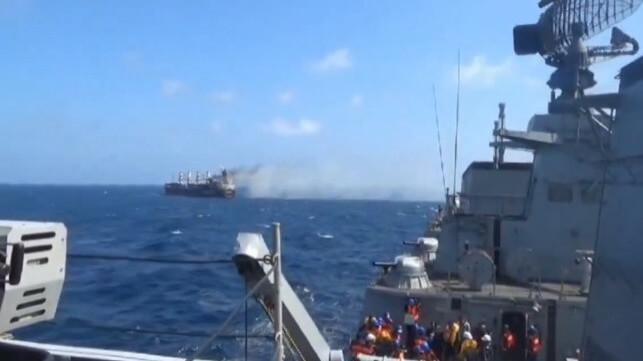Jordan Adapts to Higher Shipping Costs From Red Sea Security Crisis

Jordan is bracing itself for extended shipping disruption in the Red Sea. Last week, Jordan’s cabinet led by the Prime Minister Bishr Khasawneh extended the exemptions to custom duties, and the general and private sales tax on maritime freight charges until June 30, 2024. The government initially introduced this exemption on January 21, a move that was expected to curb rising prices of basic commodities imported in the country.
Jordan’s only port, Aqaba, has been caught up in the Red Sea security crisis, resulting in a drastic reduction in ship calls. Most Jordanian imports go through the Strait of Bab-el-Mandeb, which merchant shipping is avoiding as Houthis escalate attacks.
According to data released last month by Jordanian Logistics Association (JLA), Port of Aqaba saw a significant decrease in container shipping in the first quarter of this year. During the period the port handled 87,708 containers, a 20 percent decline compared to last year’s figure of 109,674 containers.
Exports also declined 29 percent, with 22, 836 containers handled in the period compared to 32,128 in 2023.

that matters most
Get the latest maritime news delivered to your inbox daily.
The government’s directive to extend exemption of custom duties comes a week after Houthis threatened to launch a new wave of attacks for vessels headed to Israel from the Mediterranean Sea. This could add another shipping hurdle for Red Sea ports such as Aqaba.
Meanwhile, with the Red Sea blockade expected to continue, Port of Salalah in Oman is positioning itself as a viable alternative to the time-consuming detour around the Cape of Good Hope. Strategically located along the main East-West shipping route, Salalah has launched a new multimodal option for shipping lines seeking faster alternatives between Asia, the U.S East Coast, and the European destinations. Containerships now have an option of unloading some cargo at Salalah, which can be transferred through an overland route by trucks to Jeddah, located on the safer mid-point of the Red Sea in Saudi Arabia. The overland route takes 4-5 days, and from Jeddah the cargo could continue by sea through the Suez Canal to Europe and U.S destinations.
